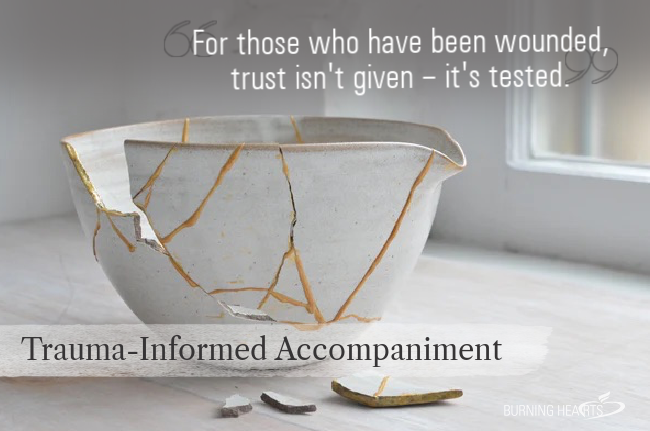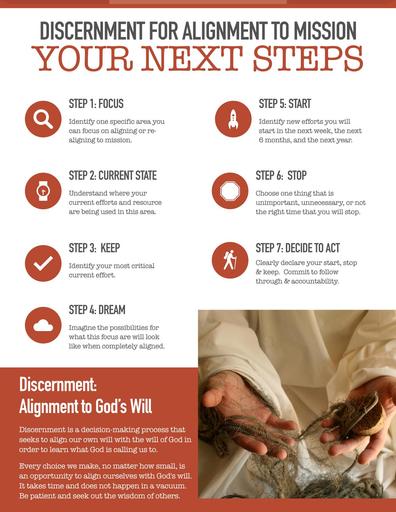When someone has been hurt—especially by the Church or those in authority—trust isn’t automatic. Missionary disciples who want to walk with the wounded must learn how to accompany at the speed of trust.
Missionary discipleship often assumes that when we extend an invitation, people will accept. But for the wounded, that’s not how trust works.
Instead, many trauma survivors:
- Take longer to trust, needing proof that someone is safe.
- Test the sincerity of those reaching out—sometimes pulling away to see if you’ll still be there.
- Expect rejection, because past experiences have conditioned them to believe it’s coming.
“For those who have been wounded, trust isn’t given—it’s tested.”
How Can Missionary Disciples Respond in a Trauma-Informed Way?
1. Commit to the Long Road
Healing takes time. Someone who has been wounded may need repeated invitations before they feel safe engaging. Let go of quick-fix expectations. Just because someone isn’t ready today doesn’t mean they never will be.
2. Stay Present Even When They Pull Away
Testing trust is a defense mechanism. Many will step back or even push you away to see if you’ll remain. Consistency is key—keep showing up, even if they hesitate, ignore, or question your intentions.
3. Accept That Trust Must Be Earned
Words are not enough. People need to see trustworthiness in action over time. Honor their boundaries. A trauma survivor’s need for space isn’t rejection—it’s self-protection.
4. Evangelize Through Relationship, Not Pressure
Make the goal presence, not persuasion. When trust is broken, the journey back to faith isn’t just about hearing the Gospel—it’s about experiencing Christ through others. Be okay with silence. Sometimes, just knowing someone is there and won’t walk away is enough.
Reflection
Jesus never rushed healing. He let the wounded come to Him when they were ready, and He stayed present even when they doubted.
Trauma-informed missionary discipleship follows that same example—walking patiently, listening deeply, and proving through actions that we are truly safe.
Question: How can we shift our approach to evangelization so that trust-building is at the center?
Related Resources from Burning Hearts Disciples
-
Practicing the Art of Accompaniment in the Midst of Scandal – What accompaniment looks like when trust in Church leadership has been shattered.
-
Mary’s Ministry of Presence in Grief – How Our Lady models compassion for those suffering loss and spiritual desolation.
-
Accompaniment in Action Hub – Explore real examples and practical tools for living out accompaniment in parish life.
Want to learn more about trauma-informed accompaniment?
Contact Cathy Lins from Gather My Lost Sheep to lead a formation session or retreat for your parish or Diocesan team.
Cathy Lins is the Director of Gather My Lost Sheep | Trauma-Informed Parishes Project | 📧


